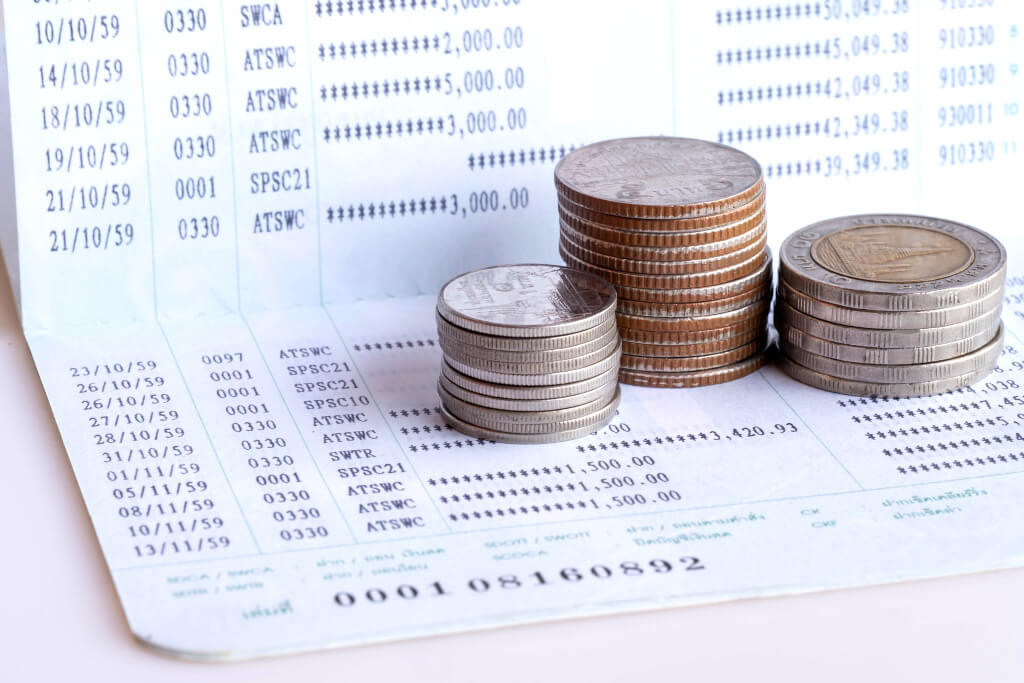Forex trading has captured the interest of many South Africans due to its potential for high returns, flexibility, and the opportunity to earn in stronger currencies like the US Dollar or Euro. While some individuals have turned forex trading into a full-time career, it is not an easy path. Success requires discipline, market expertise, and the ability to manage risks effectively. Let’s explore whether forex trading can truly be a feasible way to earn a living in South Africa.
Why is Forex Trading Growing in Popularity in South Africa?
Several reasons are believed to contribute to the growing popularity of online forex trading in South Africa. Here are a few examples:
The volatility of the ZAR
The volatility of the South African Rand (ZAR) against major currencies like USD and EUR creates profit potential for traders who can predict price movements accurately.
Another major appeal is the potential to earn in foreign currencies, providing a hedge against the unstable value of the Rand.
Improved infrastructure and technical advances
Smartphones are common in South Africa and the infrastructure for internet connections have improved greatly. You no longer need to move into a major city and sit in front of an expensive computer in an office building to access the world´s forex markets.
A high level of unemployment and underemployment
The unemployment and underemployment levels are very high in South Africa, and a lot of people are constantly looking for a job – or an additional income stream.
Forex trading online does not come with big start-up costs and is therefore an alluring way to “create your own job”. If you have a smartphone, an internet connection and a modest starting capital you can get going. You do not need a specific university education or the right connections to be given a chance.
More fx brokers are now targeting the South African market
Local brokers catering specifically to South Africans have made it even easier to participate in the global forex market by offering ZAR accounts and accepting localized payment options. In some cases, international fx brokers have responded to the increased competition by offering similar perks to their South African clients. Combined, this has created a more appealing and profitable environment for forex traders in South Africa.
More brokers taking an interest in the South African market also means more marketing campaigns, and more people in South Africa are today aware of the possibilities of online fx trading.
In South Africa, forex trading is legal and regulated
Forex trading is legal and regulated in South Africa, with forex brokers being regulated and overseen by the Financial Sector Conduct Authority (FSCA). This has helped create a safer environment for traders, and forex trading is also increasingly being perceived as a legitimate and worthwhile pursuit in South Africa. For many, forex trading now represents a reputable way to break free from traditional employment and achieve financial independence.
Is Full-Time Forex Trading Realistic?
Making a living from forex trading in South Africa is possible, but it is not easy. As anywhere else in the world, success depends on several factors. Below, we have listed a few examples.
- Consistency: Long-term successful forex traders typically achieve small but steady gains over time rather than relying on one-off big wins.
- Capital: Trading a small account limits your income potential. Having sufficient capital allows for more flexibility, more room to diversify, and the ability to absorb occasional losses.
- Knowledge: Understanding the market, market analysis, trading strategies, risk-management, and more, is essential to identifying many good opportunities and turn them into profits without getting wiped out in the process.
- Risk Management: Protecting your trading account by managing risk effectively is critical for long-term survival.
While some traders eventually manage to make a living from forex trading, the majority of retail traders (non-professional traders) never become consistently profitable.
Income Potential
The income potential of forex trading varies widely and depends on factors like account size, strategy, and market conditions. While some experienced traders earn a sustainable income, it is essential to have realistic expectations, especially for beginners.
In the early stages, forex trading may serve as a supplementary income source rather than a primary one. Many traders maintain other sources of income while honing their skills and building their accounts. Transitioning to full-time trading should only be considered after achieving consistent profitability over an extended period, and when you have created a nice financial cushion for yourself by putting profits from forex trading into long-term investments.
You can learn about other types of trading that might have a higher income potential by visiting https://www.daytrading.com/. Daytrading.com feature a section especially designed for South African Traders.
Challenges of Forex Trading
Forex trading comes with several challenges that make it difficult for many to turn it into a sustainable career.
One of the primary challenges is market volatility. While fluctuations in currency prices create opportunities for profit, they also increase the likelihood of losses. Without proper risk management, it’s easy to deplete your account in a short period.
Leverage, a common feature of forex trading, allows traders to control large positions with relatively small capital. While this will amplify profits, it also magnifies losses. Many inexperienced traders misuse leverage, leading to significant financial setbacks. It is extremely important to have an adequate risk-management strategy in place that takes leverage risks into account.
Another major challenge is the psychological aspect of trading. Fear, greed, and impatience often lead to emotional decisions that can derail even the best strategies. Maintaining discipline and sticking to a trading plan are critical but difficult skills to master.
Steps to Build a Sustainable Trading Career
To make forex trading a viable career in South Africa, you need a structured and long-term approach.
Start with Education
Forex trading is not gambling; it’s a skill that requires a solid understanding of how markets work. Aspiring traders must learn many things, e.g. how to analyze charts, interpret economic indicators, and use trading platforms effectively.
Many brokers offer free educational resources, including webinars and tutorials, to help beginners get started. While this can be great, it is not a good idea to get all your information from a single source. Branch out and obtain information from several sources, and always keep a critical mind.
Develop a Trading Plan
A clear trading plan outlines your goals, strategies, and risk management rules. For example, you should determine how much to risk per trade (typically no more than 1–2% of your account) and set stop-loss levels to limit potential losses. Having a plan helps you stay disciplined and avoid impulsive decisions.
Select a Broker
Choosing the right broker is crucial for a safe and efficient trading experience. You need to stay clear of the fraudsters and you need a broker where the fee structure is a good match for your trading plan.
In South Africa, the Financial Sector Conduct Authority (FSCA) regulates forex brokers to ensure they meet high standards of transparency and client protection. Look for brokers that are FSCA-regulated and offer features like competitive spreads, fast execution, and ZAR trading accounts.
Practice with a Demo Account
Before you commit to any broker, sign-up for a free demo account to test out what the broker has to offer and see if the trading platform is suitable for you and your trading strategy. Taking the time to get a demo account and use it have many benefits and is not a step you should skip.
Now when you have a demo account, also use it to test-run your trading strategy and risk-management strategy. Using a demo account allows traders to test-run and practice strategies without risking real money. This step is invaluable for understanding how the forex market operates and refining your trading plan.
Transition to live trading only when you are consistently successful in a simulated environment.
Notes:
- You will typically not experience slow executions in a demo account, so you will not be prepared for this when you switch over to real-money trading. (If you engage in CFD forex trading, slippage is less of a concern as your broker is your counterpart – you are not being matched with other traders.)
- The psychological aspect of risking real-money will not be present in the demo account.
- Before you start adjusting your trading- and risk management strategies, read about the risks of form fitting.
Start Small and Scale Gradually
When you begin live trading (real-money trading), use only a small portion of your capital for each trade to minimize risk. Focus on consistency rather than large profits, and gradually increase your position sizes as your capital grows.
Understand the Tax Implications in South Africa
Profits from forex trading in South Africa are subject to taxation. The South African Revenue Service (SARS) may classify forex earnings as ordinary income or capital gains, depending on the nature and frequency of your trading activity. Maintaining detailed records of your trades is essential for accurate tax reporting. Consulting a tax professional can help you understand your obligations and optimize your strategy.
Is It Worth Pursuing?
Forex trading offers the potential for financial freedom, but it is not suitable for everyone. It demands patience, resilience, and the ability to adapt to market conditions. For those willing to put in the effort, forex trading can become a rewarding career.
However, it’s important to remember that the road to profitability is challenging. Losses are inevitable, and success requires a willingness to risk-manage well, learn from mistakes and continuously improve.
Making a living from forex trading in South Africa is achievable, but it requires commitment, discipline, and a professional approach. It is not easy money, nor is it low risk. For those willing and able to invest time in education and practice, forex trading can offer the earning potential to build a sustainable career. It is crucial to approach trading with realistic expectations and to prioritize risk management at every stage. With the right mindset and preparation, forex trading can become a viable path to financial independence.




